Caffeine is one of the only legal psychoactive stimulants but is it good or bad for our health? This week, the Naked Scientists are delving into the science to find out. Plus, the latest on Zika virus, bed bugs get their genomes sequenced, and will going out with wet hair give you pneumonia?
In this episode
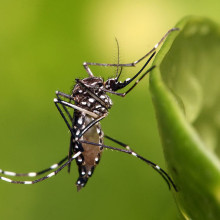
00:47 - Zika declared public health emergency
Zika declared public health emergency
with Peter Horby, Oxford University
The World Health Organisation has declared a public health emergency around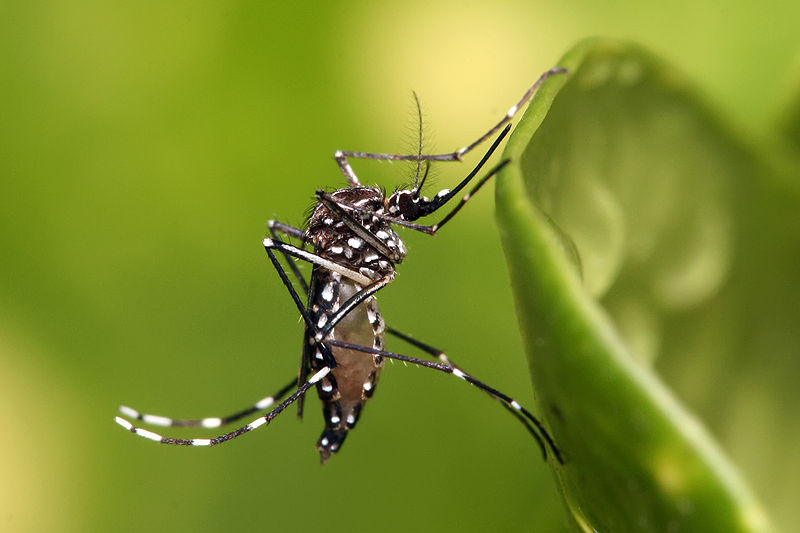 the outbreak of Zika virus in Brazil where as many as a million people could have been infected with this agent since last year. The virus has been linked with a birth defect known as microcephaly, which means an undersized brain in children born to women who pick up the infection when they're pregnant. Zika virus was first described in the 1940s in one part of Africa and it's transmitted by mosquitoes but scientist don't know what's causing the sudden flurry of cases in Brazil, or the true scale of the disease. Next week the UK Science & Technology Committee have announced that they're convening a special hearing on Zika to examine the threat. Peter Horby specialises in emerging infectious diseases at Oxford University and he'll be giving evidence to that panel, as he explained to Chris Smith...
the outbreak of Zika virus in Brazil where as many as a million people could have been infected with this agent since last year. The virus has been linked with a birth defect known as microcephaly, which means an undersized brain in children born to women who pick up the infection when they're pregnant. Zika virus was first described in the 1940s in one part of Africa and it's transmitted by mosquitoes but scientist don't know what's causing the sudden flurry of cases in Brazil, or the true scale of the disease. Next week the UK Science & Technology Committee have announced that they're convening a special hearing on Zika to examine the threat. Peter Horby specialises in emerging infectious diseases at Oxford University and he'll be giving evidence to that panel, as he explained to Chris Smith...
Peter - The mosquitoes don't fly very far at all; probably only a few hundred metres, up to 500 metres, maybe, so it's actually people that spread it. So someone will get infected and they will travel while their still infectious, and then they'll be bitten by a mosquito at the other end, and then they will then infect the mosquito populations and humans at the other end, so it's people that are moving the virus around the world.
Chris - And when a person succumbs to Zika virus, what happens to them? How does it make people ill?
Peter - Well it's generally a mild illness actually. Probably 60-80% of infections are, actually, asymptomatic so people don't really get sick and those that do get sick, they'll get fever, muscle aches, joint pain and a rash. It wouldn't really be a concern if it hadn't been for the abnormalities in the babies born towards the end of this year.
Chris - How long does a person incubate the infection before they become symptomatic?
Peter - Not really known but it's probably three days, possibly up to two weeks; we need to really look into that.
Chris - You say that this is a mosquito spread infection, therefore the infections likely to go where the mosquitoes are. So where around the world are those mosquitoes and, in other other words, which territories are at most risk of ending up with this as an endemic infection?
Peter - Unfortunately, the mosquitoes are all over the place. The Aedes mosquitoes really live in the tropical band but that tropical band is all the way around the world. So it's across Central Africa, South America, most of Asia; so huge populations are at risk of being bitten by these mosquitoes. There are two types that are likely to be transmitting this virus; there's the Aedes aegypti, which is the principal vector of Dengue, so we're likely to Zika virus in the same distribution we see Dengue virus. But there's another mosquito called Aedes albopictus which is a bit more tolerant of cold, so we actually have that mosquito in parts of southern Europe and it's also in reasonably large parts of the southern parts of the United States.
Chris - One of the most concerning aspects of this outbreak has been that people have reported an increase in microcephaly; these are babies being born with brains that are undersized. What's the evidence that Zika virus is to blame for that?
Peter - The reports of microcephaly, which many of us will have seen on the TV and are quite distressing, is the reason that the WHO have declared this public health emergency. What we've seen is, in Brazil, the virus really took off in February last year and then, almost exactly nine months later, there was an increase in the number of babies born with microcephaly and then there was biological evidence as well. So some women who had abnormalities on ultrasound, they took a sample of the amniotic fluid that surround the baby in the womb, and found the virus there, and then in a handful of babies that were born with microcephaly and then died very quickly, and in a couple of babies there were spontaneous abortion, they also identified the virus in those children.
Chris - Do we know how it damages the developing brain?
Peter - No we don't. We know that babies can be infected in the womb by several different organisms and, traditionally, that does interfere with the development of the child. One of the worries is that the microcephaly we're seeing is just one presentation of the problem; there may be more subtle changes in developmental or neurological development of children that are harder to detect that might be due to the Zika virus.

05:15 - The future of our kitchen cabinets
The future of our kitchen cabinets
with Peter Cowley, Tech Investor
What is the future of our kitchen cabinets? Tech investor Peter Cowley talked  Graihagh Jackson what culinary gadgets are hitting the market soon...
Graihagh Jackson what culinary gadgets are hitting the market soon...
Peter - Yes, this is quite an amazing device which will allow one to roast beans, before grinding them, with a set temperature profile and a cyclone speed which allows cooling. And the idea behind it is that you can set it exactly right for a particular recipe of roasting and share that. So you can actually share round amongst, you know, other users of the machine the best way of doing this and getting the best coffee.
Graihagh - So I have an app downloaded on my phone and that pairs with this device with bluetooth and that means I can control the temperature; how hot it gets and how quickly it gets to that temperature. Does temperature have a big role to play in this?
Peter - Apparently, it's very important. I take my coffee out of jar so it comes out of the kitchen cupboard so, not to me but there are points in the temperature curve between 205 degrees centigrade and 250, where certain things happen; the way it breaks down where the chemistry of the beans actually happens and separates out which then gives you the difference between a lightly roasted coffee and and a very dark roasted.
Graihagh - So this coffee roaster - it's about 30 cms in height, it's white, and there's a glass jar at the bottom. And at the top, if you look in, you can see a fan in there; I presume that's where the coffee beans are going to go. And it's pretty heavy actually, it's pretty hefty, although it is quite slender and narrow - maybe only 10cms at its widest at the top. So we wouldn't have too much trouble fitting on your kitchen work surface.
Peter - It certainly looks appropriate for the sort of price you're paying for it and, in fact, it's only doing 50-60 grammes of coffee anyway so, if you look at it that way round, it's actually quite large but it would look great in a high end kitchen.
Graihagh - It's now saying ready to roast on the machine so why don't we pour those lime green beans in... Okay. And now, if we twist this nozzle, the fan will turn off as the beans drop in - wont they? So let's do that. The fan goes off, in go the beans and I'm going to twist it back round shut it and now, on my app it's saying roasting. And we can follow it in real time as well, so I can see currently it's only 120 degrees but it's rising... 126, 130... Whilst that's roasting away, tell me about this bag you've brought along with you?
Peter - Yes. This is a suvee bag, in fact, and it's used in high end kitchens, so Bloomenthal and Ramsey have used them for many years but it's coming down market now; downmarket in the terms of price and increasing number of volume.
Graihagh - So talk me what I do with it; what sort of things would I cook in this bag?
Peter - It's designed to cook all kinds of things, so meat and fish are the obvious ones, but one can also cook egg. This is rather a big bag; this would probably be for a roast for two or three people, put it in here, seal all the air out of it and then drop it in a bag of water. Good old boil in the bag things from the 70s which I sort of sort of grew up with - no I didn't, that would be very unfair on my mother - and so that cooks then. Now the difference about the cooking is that it's very low temperature, it's 55 or 60 degrees centigrade but for much longer. And what it does, because it's a constant temperature, it cooks through gradually so that it's not overcooking anything; it's effectively making sure the fabric of the food remains perfect.
Graihagh - And I suppose that's why it's been more beneficial than cooking in an oven. I can already see the benefits of less washing up because it's in a bag but, actually, does it taste any better because, I have to admit, the idea of boiling my roast dinner in a bag is not very appealing.
Peter - I'm absolutely confident that it will taste better. What it won't do is look better, unless you brown it.
Graihagh - I think it's the boil in the bag concept that I'm not on board with. So the coffee roaster, so we'll turn back to it because I'm looking at the temperature now and it's 196 and if I peer over the top and look at the beans, they've gone from that lime green colour to a sort of caramel sort of colour, and I tell you what I'm going to do, I'm going to boil the kettle in anticipation. So, I will hand back to you Chris in the studio and I will speak to you when the beans are roasted.
Chris - I can't wait, I can smell that coffee already.
Interview continues after 'Don't let the Bed Bugs Bite'...
Chris - Still to come later on the programme, is coffee good for you? Speaking of which, I can almost smell the fumes I think. How are you getting on Graihagh and Peter in the kitchen?
Graihagh - We're getting on pretty well actually. The roaster is now finished and what we've got to do is we've got to get them from where the fan is and we've got to get them into a little jar. So, if we just hit this switch here - let's have a look. The fan is on and it's blowing the beans into a little glass jar at the bottom. So now what we'll do is we'll grind them up...And the kettle is boiled. Are you excited Peter?
Peter - I'm really looking forward to this.
Graihagh - So Peter - given that lots of high street chains do this. Is there really a market for this sort of thing. Why would we want something like this?
Peter - Well. I think that's probably been proven by the fact that this is a company that was called Ikawa, and they've had a high end version of this for some years and they've probably sold many hundreds of those, so that's sort of proved that people do like it. This is a lower cost version for the domestic market.
Graihagh - And how much is it?
Peter - I believe this one's about £500. So for a roasting device that does sound quite expensive, I agree. But if you're really into your coffee and you want to do it correctly, and you want to share the results, and get some really great coffee, it must be worth it.
Graihagh - I've brewed up some coffee and I will back in the studio with you very shortly. Chris...
Chris - Excellent. I'm looking forward to it. I have my caffeine my cravings kicking in already.
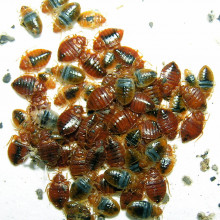
09:21 - Don't let the bed bugs bite
Don't let the bed bugs bite
with Joshua Benoit, University of Cincinnati
Bed bugs lurk in the nooks and crannies around your bed. And when night falls 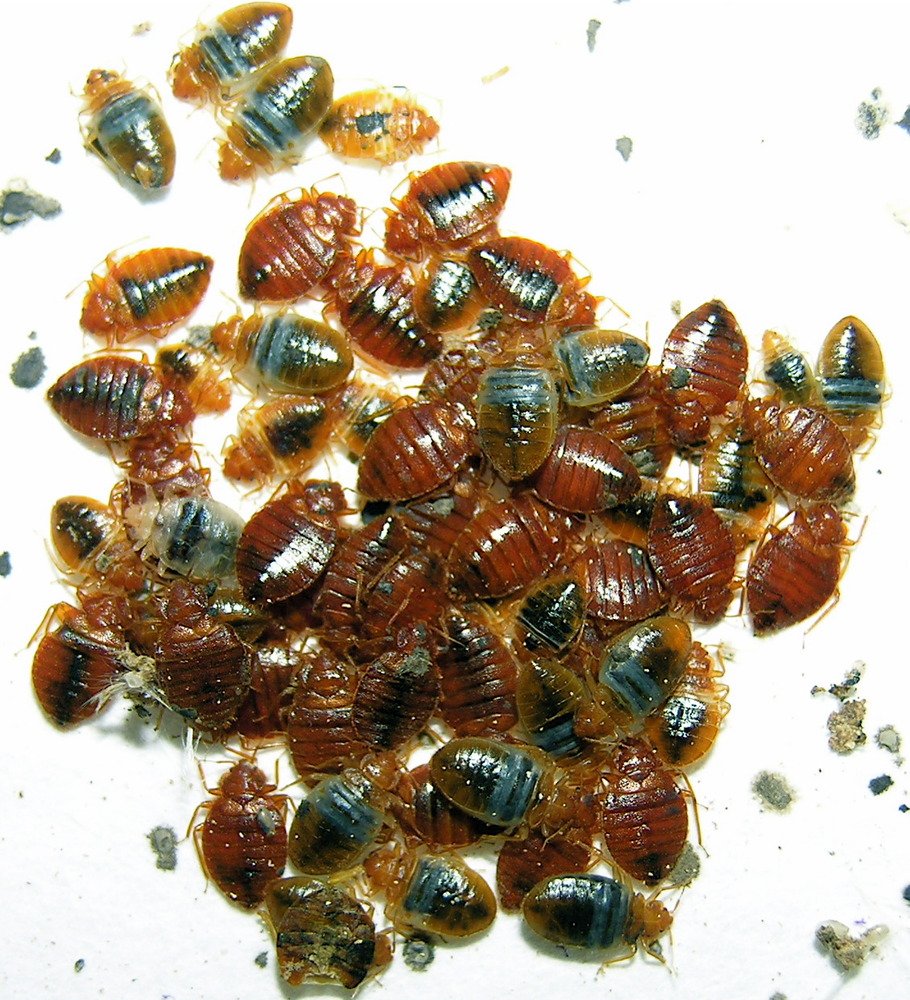 they creep out and use smell and temperature to track you down and to drink your blood! The bites they leave behind are large, they're red and they're intensely itchy. Nearly eradicated half a century ago, these pests are making a comeback though and a very serious nuisance of themselves. So much so that more than 100 researchers across the globe have now collaborated to sequence the genetic code of the bed bug in the hopes of finding a way to control them. Felicity Bedford spoke with lead author Joshua Benoit...
they creep out and use smell and temperature to track you down and to drink your blood! The bites they leave behind are large, they're red and they're intensely itchy. Nearly eradicated half a century ago, these pests are making a comeback though and a very serious nuisance of themselves. So much so that more than 100 researchers across the globe have now collaborated to sequence the genetic code of the bed bug in the hopes of finding a way to control them. Felicity Bedford spoke with lead author Joshua Benoit...
Joshua - Here in the US we have a common saying "don't let the bed bugs bite". So we'll say that most people don't even know what bed bugs were but here, the number of bed bugs that are found is increasing pretty much every year since 2000. So people would use a lot of pyrethroids and other pesticides but now these bed bug populations are showing thousands to tens of thousand fold resistance to these chemicals, so they're becoming more prevalent. And so, for a long time in say cities like London, New York, they weren't really endemic, so people would travel and away and bring them back, but now there's almost endemic populations of bed bugs present within all these cities.
Felicity - Is this just a case of changing the type of pesticide that we use? Why are you investigating the genetics exactly?
Joshua - We've almost run the course of every single pesticide that is actually available to use and what our goal with the genome is to actually begin to start seeing if we can, maybe, find some kind of novel target. Either some sort of gene or some sort of interference that can be new and, hopefully, bed bugs won't have resistance to this at least for a few years so we can begin to control this exploding population of bed bugs.
Felicity - Was this project solely about finding out how they've evolved to resist these pesticides or is there more to it than that?
Joshua - No, there's actually more to it than that. Bed bugs are actually interesting biologically a little bit too. The first thing is, they feed solely on blood and they have all these novel adaptations and we want to look at those, and their sensing and odour receptors are adapted to finding their vertebrate host. And the second one is their mating style is very unique, so they mate by a process called traumatic insemination. The mating process involves a lot of conflict between the male and the female and for this, the male actually ends up piercing the underside of the female through a special organ and then depositing the sperm into her abdomen rather than through the reproductive tract like a lot of other insects. And so we look at some of the genes potentially involved in this topic.
Felicity - So at this stage, what you've got is that you've got a genome and you've decided these are the interesting bits, these are the genes we need to be looking at because we know that they're involved in the really interesting biology and, moving forward from here, there's a lot more research to do. What is the next step?
Joshua - So the idea is to potentially look at them and how populations of bed bugs move throughout areas and using the genome as a resource to analyse that. But then, also, what they want to do as well is they want to see if we can take the genome and look for potentially novel bed bugs specific genes that are critical to their survival and then, hopefully, find chemical targets that we could actually then use to control the bed bugs.
Chris - Sincere apologies to anyone who's now feeling the intense urge to scratch like we are! That was Joshua Benoit from the University of Cincinnati speaking with Felicity Bedford and his bed bug genome study was published this week in the journal Nature.
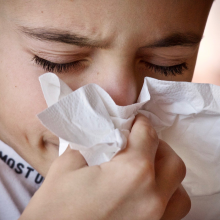
14:29 - Will wet hair give you a cold?
Will wet hair give you a cold?
with Dr Kat Arney, Naked Scientist
Kat Arney been peeking out from under her brolly to tackle another mythconception. This week, will going out with wet hair give you a cold?
Kat - "Dry your hair before you go out, or you'll catch your death of cold!" How many of us, particularly those blessed with luxuriant, flowing locks, have heard this at some point in our lives? With high winds and rainstorms lashing many parts of the UK over the past month or so, long-haired lovelies with busy lives or a low boredom threshold might be wondering if it's really worth drying off our locks before tackling the outside world. But is there any scientific truth to the idea that going outside in the winter chill with wet hair will literally give you a chill?
It's not entirely clear where this myth has come from, but in a snub to concerned parents everywhere, it's not true. The suspected link between cold temperature and catching a cold goes back a long way, from German scientists studying unfortunate soldiers stuck in cold wet trenches in the First World War to sturdy Canadian Mounties stuck up in the Arctic, who were more likely to get colds if they over-exerted themselves in the nippy conditions.
And in 2005, researchers at the Common Cold Centre in Cardiff - yes, there is a common cold research centre - published the results of a fairly small study showing that a small proportion of volunteers who had their feet dunked in cold water were more likely to develop cold-type symptoms a few days later. But that was 13 out of 90 people who got the cold foot bath, compared with 5 out of 90 who managed to avoid that unpleasant experience.
But while going out in the cold with wet hair will probably make you feel more chilly, and there's some evidence that it can lower your body temperature, that's not what gives you a cold. That task comes down to microscopic viruses, such as rhinovirus, adenovirus, and the daddy of them all - influenza - and you still need to be infected with cold viruses to catch a cold. And these are spread by horrible germy people coughing and sneezing and snuffling all over the place, rather than by the dampness of your hairdo. Although if you go out with wet hair in sub-zero temperatures, there's a good chance that the water in it will freeze, which could make your hair more brittle and susceptible to breaking. I guess it depends whether you think scruffy hair is worse than a horrible cold...
That's not to say that temperature is completely irrelevant - after all, it's well documented that colds and flu are more prevalent in the miserable winter months. By way of explanation, a paper published in 2015 showed that cold viruses do thrive in cold weather, because sensors in the immune system are a bit more sluggish when the temperature drops. But having wet hair and feeling cold won't make you catch them - getting the little beggars inside your body will.
So at this time of year when snuffles and sneezes are generally more prevalent, it's much more important to wash your hands regularly and avoid touching your face than worry about whether you've washed and dried your hair.

18:01 - Music, language and the brain
Music, language and the brain
with Professor Ian Cross, University of Cambridge
New research published in The Royal Society Open Science journal suggests that 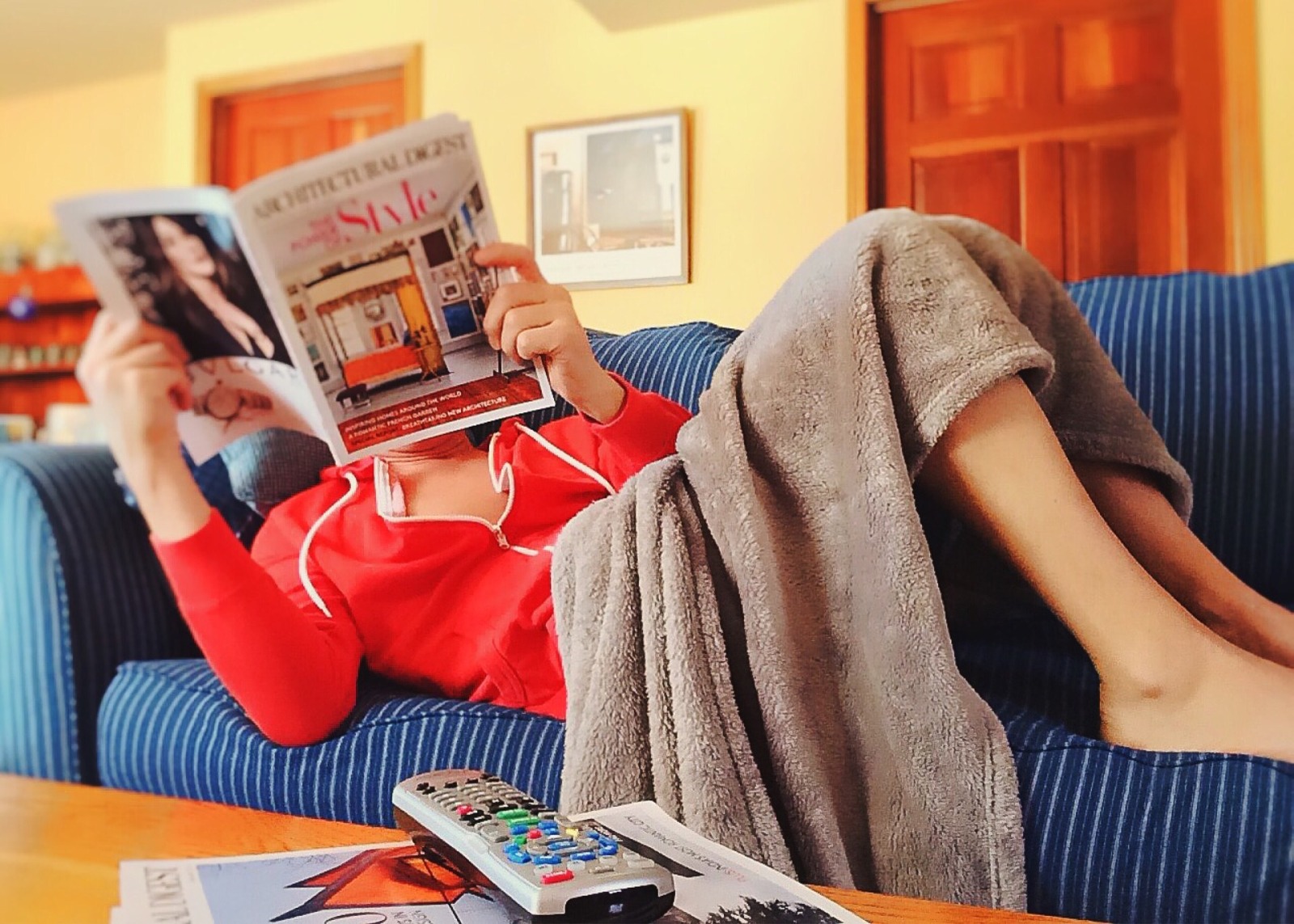 we hear music differently, especially when sentences that are grammatically 'knotty' or difficult. Graihagh Jackson met with Cambridge University's Ian Cross to 'pluck' away at the findings...
we hear music differently, especially when sentences that are grammatically 'knotty' or difficult. Graihagh Jackson met with Cambridge University's Ian Cross to 'pluck' away at the findings...
Ian - The study looks at whether or not language and music have the same relationship to our experience. That is, do we use the same brain systems in experiencing language and experiencing music. Specifically, what this study does is looks at the ways in which we experience one thing following another. Now in language, we can see this very clearly - it's called syntax. It's a set of rules that are implicit, we're not aware of using them but we're aware when they're breached. Music seems to have something similar going on.
Graihagh - I can imagine how in sentences there's a rule, there's a structure, there's a grammar but in music how does that play out?
Ian - Well here's a simple example... [music] It's possible but you wouldn't probably go there... And you certainly wouldn't go... [music]
Graihagh - Yes, I can see what you mean; it just sounds wrong.
Ian - Yes, so we have intuitive expectations of what should follow what in music just as we do in language.
Graihagh - So it's theorised that these pattern, rule breaking things are processed in the same part of the brain and the idea of this study was to work out what happened?
Ian - Yes. The idea is to present people with sentences, which have "knotty" bits, where they suddenly veer off in a weird direction like "the horse raced past the barn fell."
Graihagh - Yes. I was sort of looking up thinking, yes, yes, okay, I'm with you but it's not. I mean there's easier ways of saying that.
Ian - There are easier ways of saying that but we can say it that way.
Graihagh - And they did this and played music at the same time to see what participants response was? Whether they understood or misunderstood the sentence...
Ian - Yes. They found that "knotty" bits in the music affected perception of "knotty" bits in the speech, and vice versa. What that suggests is that a prior hypothesis, the shared syntactic resource integration hypothesis - snappy title - was in fact correct. And this hypothesis suggests that in language you have representations of words, word meanings if you like stored in particular locations of the brain. In music, you've got representation of pattern stored in other locations of the brain. The bit that's shared is the bit where legitimate order is sorted out. They suggest that there are common cognitive and neuro resources implicated in integrating the temporal structure in both language and in music.
Graihagh - So, there's almost this overlap and the brain is trying to process two bit of information in the same place and that's why you hear music slightly differently or misunderstand this "knotty" sentence?
Ian - That is precisely the case that the same resources are being used to work out or not whether a particular sequence is legitimate or not.

21:30 - Einstein's theories still making ripples
Einstein's theories still making ripples
with Christopher Moore, University of Cambridge
A century or so ago, Einstein suggested that the fabric of space should be periodically punctuated by gravitational "ripples" produced by massive objects like black holes. And although all of his other theories have so far stood up to scientific scrutiny, no one has yet managed to find these gravitational waves. But, recently, there's been growing excitement across the scientific community and on social media about these ripples. But what are these waves, how are we hunting for them, and, if we find them, what can they tell us about the Universe? Georgia Mills took a trip to the Institute of Astronomy, in Cambridge...
Christopher - My name is Christopher Moore and I'm a student at the Institute of Astronomy in Cambridge and I'm studying for my PhD, and I work on gravitational waves.
So gravitational waves are typically very, very small ripples in the gravitational field, or space-time, and they travel through the universe at the speed of light. So the gravitational field is something like the sun - you can imagine the sun as being a very heavy object sitting on a rubber sheet and the sheet bends in towards the sun and that curvature, that bending of the sheet, is what the gravitational field really is.
Georgia - Rather than thinking of gravity as a pulling force, you can think of it as curvature of the fabric of the universe - what we call space-time. To help me out, Chris had an idea for a demo we could do to visualise this...
Right, so let's give this a go. I've brought along some props - I couldn't find a rubber sheets, I found my housemates bed sheet. I'm sure she won't mind my borrowing it. I've got grapefruit to represent the sun and I've got some planets here as well - some chocolates.
So here we go. So we've pulled out the sheet, as tight as possible, and it's formed a straight surface.
Christopher - It should be infinite really but we haven't got an infinite bed sheet - so a large flat sheet.
Georgia - Right. So this represents space time...
Christopher - Yes...
Georgia - I'm going to dump a sun in it. Right - the grapefruit, or sun, has pulled down the rubber sheet, or space time, and now it's formed a sort of dip in the middle.
Christopher - Yes, so the sun (the grapefruit) is in the middle of our sheet, and the sheet is bending in toward the middle of the sun and this represents the gravitational field of the sun.
Georgia - So let's test out this gravitational field with the planets... I'm going to roll all these planets along the sheet and see what happens...
Christopher - That's better. You got nearly two orbits there.
Georgia - So some of our planets shot off into the abyss but some of them did some quite nice orbital shapes around our sun and eventually went into the middle.
Christopher - So the idea is, if you were to roll the marble fast enough across the sheet but not directed towards the sun, it should roll round and round the centre - the centre being the grapefruit - round and round and this is called an orbit.
Georgia - This curvature of space time means that planets are caught in the gravity of larger objects and they form orbits. Our demo isn't perfect - the friction of the sheet means our planets actually slow down and fall into the centre. Luckily for us, space is free of these frictions so our planet isn't spiralling towards a fiery inferno. So can we use this demo to visualise gravitational waves?
Christopher - So, in our demo we had a large grapefruit as the sun and a very small round chocolate sweet as our planet. If instead we had two grapefruits - so two large objects going round each other; as they move they constantly change the shape of the rubber sheet. And if you looked at this from a long, long way away, you'd see small changes in the fabric of the sheet - small changes in the space time - rippling out from the centre of this system and these ripples would be the gravitational waves.
Georgia - When massive objects interact, they cause ripples along the space time which, in theory, could be detected by us. Gravitational waves were predicted by Einstein almost 100 years ago so, have we managed to find them yet?
Christopher - No, we haven't.
Georgia - Well, how are we going about trying to find them - I'm assuming scientists are trying their hardest?
Christopher - There's a number of ways you can do it. The most popular approach is to hang a couple of mirrors a few kilometers apart and to try and measure the distance between these mirrors using lasers. If a gravitational wave were to go through, between your mirrors, it would stretch and compress the space in between your mirrors and your mirrors would move. And you'd be able to measure this as a change in the length of the distance in between your two mirrors.
Georgia - Isn't there a risk that all this other kind of stuff can get in the way?
Christopher - That's what makes it so difficult. So the gravitational waves are extremely weak and if you build these two mirrors on the Earth, the signal is likely to be swamped by all other sorts of noise - wind, weather, seismic waves, earthquakes, all that sort of thing. So that's what makes it hard to do.
Georgia - This challenge has been met head on by the scientific community. There are several detectors up and running, including a-LIGO in America. To avoid all of this chaos on Earth's surface, a giant L shape with vacuum chambers 4 kilometers across has been built. While the E-LSA project aims to solve this problem by heading into space but there's one big question we haven't answered yet... Why do we actually want to find them?
Christopher - Up until now, all the astronomy that we have been able to do is using light or electromagnetic waves. The systems that give off gravitational waves in large amplitude; the sorts of systems that we might be able to detect are things like: two neutron stars or two black holes in a very tight orbit and these are not the sort of systems that are ideal to study using traditional electromagnetic telescopes. So these systems - it's much better to hunt for them using gravitational waves than it is using telescopes.
Georgia - So, if I understand it correctly, this would be kind of like another way of doing astronomy - as different from light is from sound.
Christopher - Yes, that's a very good analogy. It's a completely new way of doing astronomy. So you can think of normal telescopes as being your eyes and gravitational wave astronomy as being your ears and we're trying to listen to the universe as well as look at it.
Georgia - And I've being doing a little bit of searching about the this and the word "inflation" has come up a little bit in relation to gravitational waves - what's this about?
Christopher - So inflation is a theory that says the universe underwent a very rapid period of expansion back just after the big bang or very early on. This process can produce gravitational waves; these are very, very low frequency gravitational waves with very, very long wavelengths, and you can hunt for these today by looking for particular patterns in the cosmic microwave background radiation. So that's one way of hunting for very low frequency gravitational waves.
Georgia - So gravitational waves can be used to look at - I say current - more recent cosmological events like black holes and what neutron stars are doing but they also might provide a way to peer into the very ancient history of the universe?
Christopher - Absolutely, yes. That's one possible way we can look back to the very early stages of the universe.
Georgia - Provided they're there?
Christopher - Provided they're there. We have very good reason to think that they are there!

29:06 - The history of the hot stuff
The history of the hot stuff
with Graihagh Jackson, Naked Scientist
The stimulant is never far from the headlines but there doesn't seem to be a 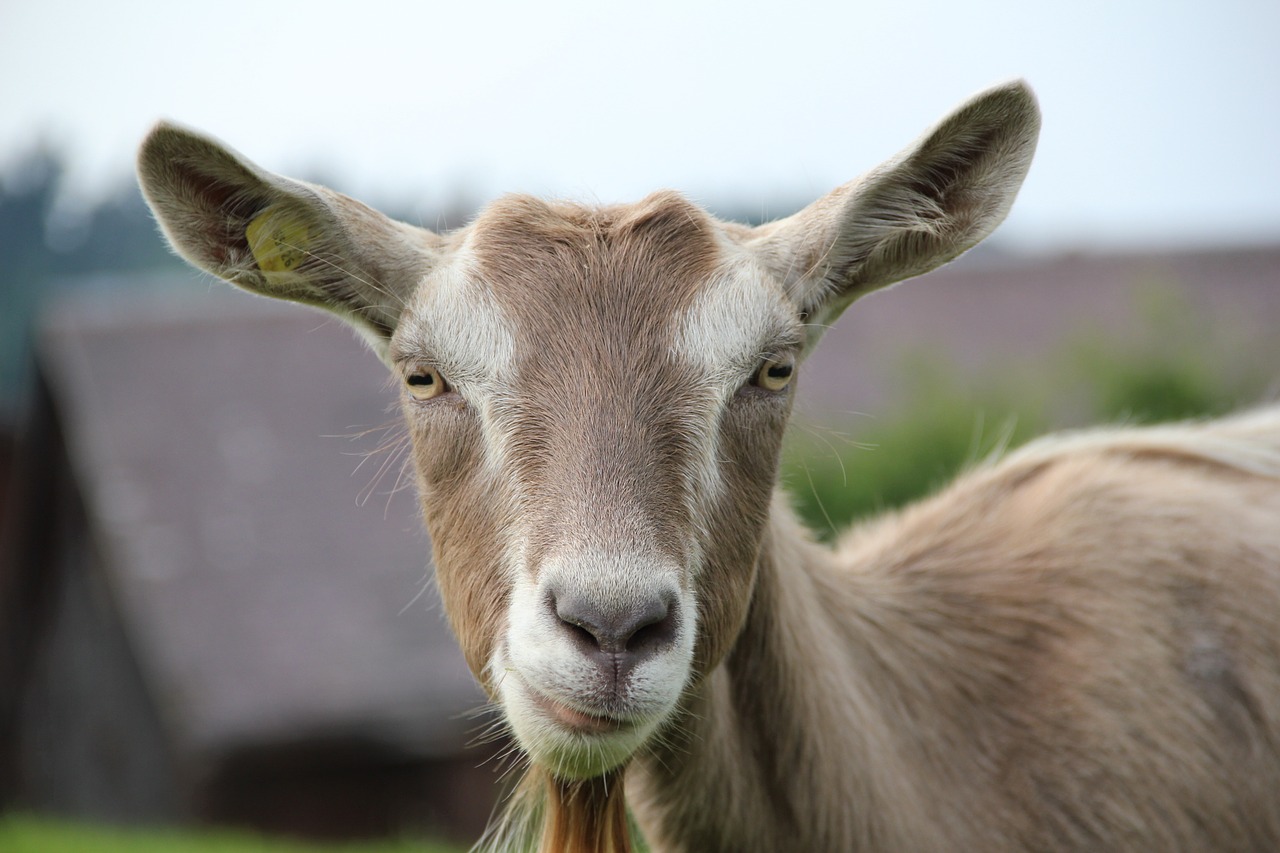 consistent consensus about as to whether it's good or bad for our health, especially when you delve into the headlines, as Graihagh Jackson explained to Chris Smith...
consistent consensus about as to whether it's good or bad for our health, especially when you delve into the headlines, as Graihagh Jackson explained to Chris Smith...
Graihagh - I was looking through some for the newspaper archives and I can see why there's so much confusion about it. I'm going to read you a select few of my favourites:
So in the 1500s when coffee was around in Turkey, the headline reads "not enough grounds were grounds for divorce." Coffee was so important that women could divorce their husbands because they didn't have enough coffee
Chris - So coffee deprivation would be grounds for divorce?
Graihagh - Yes. So coffee was a good thing back then... 1600s - it becomes a bad thing. It can cure alcoholism actually but it causes impotence. There's a great quote from a group of women who started a petition saying "We find of late a very sensible decay of that true old english vigour. Never did men wear greater breeches or carry less in them"...
Chris - And that's when they had or hadn't had their morning coffee?
Graihagh - That's when they had had their morning coffee.
1700s - you start getting coffee being good for you. It makes you work longer.
1800s - coffee makes you go blind.
1900s - caffeine is in the news and it's all bad again.
There were some studies done in the 1980s with patients having more risk of heart attacks.
And in the 2000s - it's back and forth all over the place but the stuff I've been reading tends to suggest it's actually a bit of a health food.
So, now I know that, I'm not surprised people have no idea whether it's good or bad for us because after all this, I haven't the foggiest
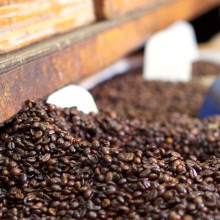
30:57 - From bean to cup: the perfect brew
From bean to cup: the perfect brew
with Alex Summers, Cambridge Botanic Gardens and Simon Fraser, Hot Numbers
The Brits may be known for their copious tea consumption, but it was actually 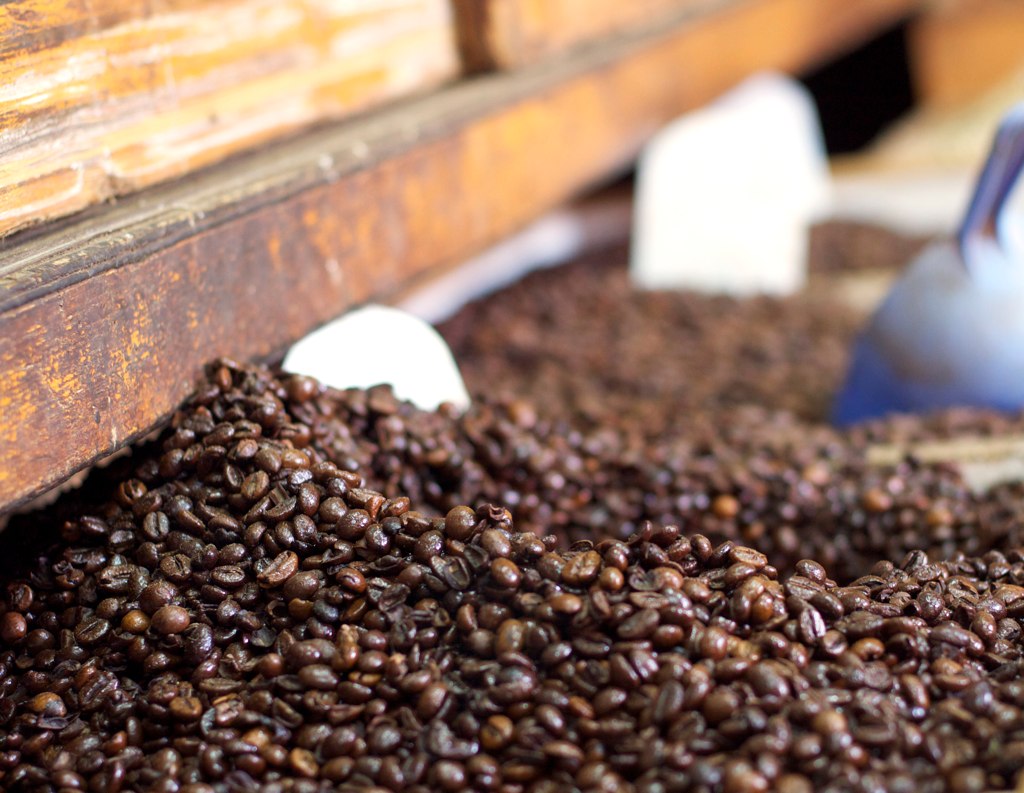 coffee that peppered our street corners first in the 1640s. 20 years later we got tea and 80 years after that, the States adopted coffee as their drink of the choice. Of course, caffeine isn't just in tea and coffee but can be found in energy drinks, drugs and even chocolate! But in finding out about our coffee history, Graihagh Jackson went to find out how a humble bean is processed into a delicious brew with Alex Summers at Cambridge's Botanic Gardens...
coffee that peppered our street corners first in the 1640s. 20 years later we got tea and 80 years after that, the States adopted coffee as their drink of the choice. Of course, caffeine isn't just in tea and coffee but can be found in energy drinks, drugs and even chocolate! But in finding out about our coffee history, Graihagh Jackson went to find out how a humble bean is processed into a delicious brew with Alex Summers at Cambridge's Botanic Gardens...
Alex - So there are two main species of coffee that are grown worldwide - Coffea arabica and Coffea robusta. The high quality coffees come from Coffea arabica and the lower quality, higher yields come from Coffea robusta.
Graihagh - I'm looking at the two of them - ones just a bit shorter. They've both got crinkled leave like someone's got a hair crimper and crimped the leaves for them; but otherwise they're remarkably similar.
Alex - It shouldn't be surprising that they look similar because Coffea arabica probably has similar ancestry to Coffea canephora or the robusta coffee. In the case of Coffea arabica, it has four copies of the chromosomes, or the genetic material.
Graihagh - Now we all know that plants like these are famous for their levels of caffeine, but why do they produce caffeine in the first place?
Alex - It's quite interesting; they did an experiment with a spider. They got it to spin a web and they fed it all manner of different drugs from cocaine, ecstasy and caffeine and what they found was that the spider produced the most erratic web when it was under the influence of caffeine. So you can truly see how effective caffeine is as an anti-herbivore agent, not necessarily so much as a case for ourselves.
Graihagh - I assume you're not just growing it to make a lovely cup of coffee today. Why do you have it here at the Botanic Gardens?
Alex - Funnily enough, actually, the opportunity to make a cup of coffee is great but the real reason we have it, like most of the collections here, is to provide a resource both to the university, but also to provide a resource to the public. So in the case of coffee, we're all familiar with it from the shops, but it's nice to give people an idea of actually where it grows and where it comes from.
Graihagh - Beans picked, we peeled off the red flesh, dried them and finally scraped off the outer husk to reveal the green bean underneath. Next stop was an artisan coffee shop called Hot Numbers for roasting. So, Alex and I set off with a handful of botanical beans to meet Simon Fraser...
Simon - We're just going to actually weigh the content of this....
Graihagh - It's about a handful isn't it?
Simon - It is - it's quitie a small amount - but we'll work with it. I'm just going to turn the scales on - we'll see... We've 10 grams so we'll try and make a very small filter coffee with this afterwards...
Graihagh - Simon fired up the roaster to 150OC - and not a degree more because even a couple of degrees can turn a good cup of coffee into a bad one.
Simon - It's a glorified tumble dryer, I reckon, with a big colander underneath...
Graihagh - I have to admit it does look very swish. It's all sort of black and stainless steel; I would say almost steam engine like?
Simon - It is - very much.
Graihagh - A steam engine with two windows. One where you can see the flames and the other where you can see the coffee beans jump around the drum while they roast.
Simon - We have a sample screen underneath it where we can pull out the coffee as it's roasting. And then, after the coffee's roasted and we're happy with the colour, then we'll drop it into this big cooling tray here and that will cool the coffee. If we didn't do that, the coffee would carry on roasting and you would get a lot of baked flavours going on.
Graihagh - I suppose much like an egg continues to cook after you boil it unless you peel it very quick?
Simon - That's it, that's it. So we...
Graihagh - ...we don't get dippy eggs.
Simon - No, No...
Graihagh - We get hard boiled eggs.
Simon - That's it, so let's hope not for some hard boiled coffee so...
Graihagh - With all our fingers and toes crossed, we poured the beans into the roaster. Alex, from the Botanic Gardens, Simon and I; we all watched in awe at our hard work roll around the machine - much like clothes in a tumble dryer. And then, the beans began to pop like popcorn.
Simon - So, we're approaching first crack. The beans are agitating a lot more; they're giving off a lot more energy and they're doubling in size.
Graihagh - I can't tell. My non-coffee connoisseur eye can't tell the difference. I can tell they've changed colour...
Simon - I can see they're dancing more and they've got a snap to them now.
Graihagh - Yes - much more of caramel... Oh yes, and I can definitely get the smell of coffee now. That smell you associate with...
Simon - Unless... I think you might be smelling some from that tub there actually.
Graihagh - Well it smells really nice, whatever it is. It's smells really good...
Simon - It's funny because well it's often confused because when we're roasting coffee it's usually - you'd expect it to be the coffee smell - but it's actually like a toast smell. It's like a breakfast smell that you'd get in the morning.
I'm about to drop the coffee out into the cooling tray from the drum... They're looking a bit patchy but it's the best we could do under the circumstances, I believe. But they got a bit of mottling and a bit of, you know, difference in colour but...
Graihagh - I would say characteristic of the Botanical Gardens.
Simon - Is that right?
Graihagh - Yes - characteristic...
Alex - Not sure we want to own that one.
Graihagh - Patchy in colour or not, the proof is in the taste. So we ground them up and brewed them but first, I had a quick question about the science of grinding.
In supermarkets, you might have seen that on the packaging it says "ground for french press" or "espresso" or whatever. But do you really need to buy a different grind for different types of brewing or is this just some clever marketing ploy?
Simon - The grinder is probably most important in getting the consistency between the beans and, if you've got a good grinder, then you get an even surface area and the more evenness between the beans, the better the extraction. And so yes, for espresso you want a fine grind; as you're getting more towards the sort of mocha pot, it wants to go a little bit courser, and as you get to french press, that's the coarsest grind.
So we're going to grind this coffe up for paper filter...
Graihagh - Away we go... I feel tense, do you feel tense?
Alex - Yes, absolutely - it's incredible.
All - Cheers!
Graihagh - It definitely is rummy...
Simon - Yes rum or almost some sort of sherry element to it.
Graihagh - See look, it didn't taste like mud Alex!
Alex - No it didn't. I'm really happy, actually. I would actually drink that.
Graihagh - How would you say this compares to what you would normally be brewing?
Simon - It's funny because it's like nothing that I've tasted really and, you know, it's not bad actually - I'm really quite enjoying it. It's very different.
Graihagh - So if Alex was to set up his own cultivation business at Cambridge Botanical Gardens, would you buy his coffee?
Simon - Well, I'd certainly give it another go to put through the roaster but I might need more than about ten grams.
Graihagh - Alex - what do you say? I mean, I feel like I should be a shareholder at least having introduced you guys.
Alex - Absolutely, absolutely! I think what we'll put to the Director is ripping out all the plants and just put in coffee right through the tropical houses.

38:21 - Mind and body: how caffeine affects you
Mind and body: how caffeine affects you
with Dr Thomas Krieg, Cambridge University
From bean to cup and then cup to consumption: what happens when we have 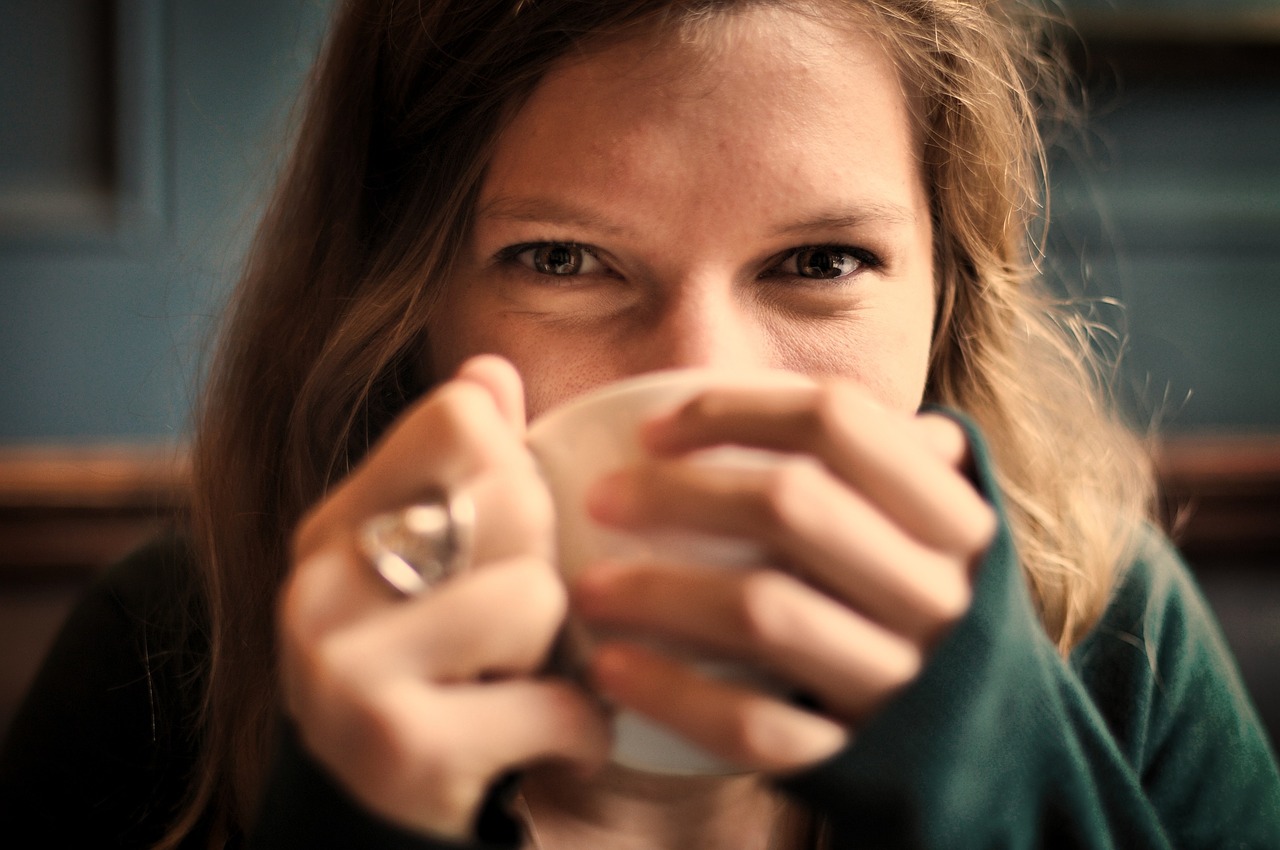 caffeine? Dr Thomas Krieg put Graihagh's body to the test when three espressos and explained the effects to Chris Smith...
caffeine? Dr Thomas Krieg put Graihagh's body to the test when three espressos and explained the effects to Chris Smith...
Thomas - The main thing, the main effects we are talking about here are the effects of the brain. So you ingest the coffee and the caffeine goes into the bloodstream and it's soluble in oil and water - that means it can easily cross the blood brain barrier. And in the brain it has effects, as everywhere else in the body, of blocking the adenosine receptors. There are many variations of adenosine receptors and caffeine pretty much blocks all of them. But what happens in the brain is that the effect of these adenosine receptors is, if they are active, they make you drowsy, and by blocking these receptors you're obviously more alert and that is the main effect.
Chris - If every organ in the body has got these or every cell in the body has these adenosine receptors, are the effects only confined to the brain then - one would think not?
Thomas - No, there are many effects all over the body. Another prominent effect is, obviously, on the heart where the heart rate gets increased and the force of the heart and, therefore, the blood pressure increases as well.
Chris - So caffeine has a generally whole body enlivening effect? You're going to stimulate the brain's wakefulness system because you're inhibiting what would normally make you feel sleepy and, at the same time, all the body cells are having these adenosine receptors blocked leading to an increase in their metabolic effort and how active those cells are.
Thomas - Yes, that's correct.
Chris - What about the fact that people say well, you know, we should try and keep our heart rate low and we should try and keep our blood pressure low. If it's going to increase the action of your heart and make your blood vessels constrict, isn't that bad?
Thomas - Yes, that's very tricky to investigate first of all because we have to distinguish between a chronic effect and an acute effect. So, a lot of things which are obviously good for you, like sport, increases your heart and your blood pressure acutely but, in the long term, it has a beneficial effect. What is helpful in this case is to look at diseases that are directly linked to situations like high blood pressure, for example strokes, and there are big studies out there now where people were followed on over many, many years and it turned out that they do not have an increased rate in stroke. In fact, in some studies they even have less risk of stroke.
Chris - So you're saying I can drink my way to fitness?
Thomas - Not quite but almost, yes.
Chris - One of the things that people often say about coffee and therefore caffein, is it makes them very jittery. And I know friends who say I have one cup of coffee and I can't do anything the rest of the day and, in fact, there was a sign on the wall in a lab I worked in Australia and it said "do stupid things more quickly with caffeine." I'm not one of those people but I know many who are. Why is that?
Thomas - The biggest things you have to look at here is that all receptors in the body can be downregulated when they are chronically activated and the same is true with adenosine receptors. So, if you take coffee in on a regular basis, the effects go away - so that is one thing. The second thing is that caffeine will be broken down in the liver by certain enzymes - they are called cytochromes. And the levels of cytochromes are highly different between individuals, so one might have very high levels of cytochromes, another one might have almost none and that means that caffeine will be broken down at different speeds between different individuals.
Chris - With that in mind then, how long will it be between having an intake of caffeine and it finally being washed out from the body, on average - how long does it last
Thomas - The half life of caffeine in itself is about 5-7 hours but the effect, you would probably not see it after like 3 or 4 hours.
Chris - We might have a long night ahead of you Graihagh. Shall we find out what your heart rate and blood pressure is doing....
Graihagh - Why not because we measured it...
Chris - Because you've now had quite a big dose in the kitchen there with Peter.
Graihagh - Yeah I have, I've had a couple of espresso's worth, and we measured my blood pressure and heart rate before the show to get a good idea if it would change at all.
Chris - That will be accurate won't it - just before an invigorating radio performance. What was it before the show?
Thomas - Yes. Graihagh was kind of relaxed with 133 over 88 and a heart rate of 75. Now we will measure again and see if there's an increase. Obviously, this is not a scientific study we're doing here.
Graihagh - Yes, there's only one of me and, I imagine, as you said, lots of people have lots of different reactions to coffee so you know...
Chris - Here we go - we're pumping up the cuff. So what would you anticipate then Thomas? What would you expect the effect of coffee to have been on a young fit female?
Thomas - I would not expect much of an effect; maybe a slight increase but then again, it's very hard to tell with this setting here of a radio show whether this is really due to the coffee and...
Chris - Or just to the adrenalizing effect of the stimulating content on this programme - is that what you're trying to say?
Thomas - Yes, that's what I'm trying...
Graihagh - Precisely - I think that's exactly what he was trying to say. And also there's the running back and forth from the kitchen as well. Lots of moving around.
Chris - Excercise is good for you see.
Thomas - And it increases the blood pressure as well. Okay now - your number now is 141 over 88 with a pulse of 82. So slightly higher than before but not much.
Chris - I'm also slightly nervous now about occupational health grounds because what this proves is that doing an invigorating radio programme gives staff hypertension and tachycardia So, could that be grounds for suing?
Thomas - I doubt it, I doubt it.
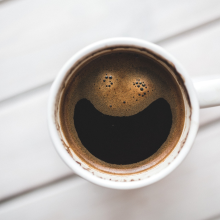
44:28 - Is caffeine good or bad for us?
Is caffeine good or bad for us?
with Dr Sandra Sünram-Lea, Lancaster University
Caffeine is never far from the headlines but is it good or bad for you? Dr Sandra Sünram-Lea spoke to Graihagh Jackson about the science behind the issue...
Sandra - Again it's difficult; it's the same as Thomas said before in terms of some of the other effects we see. You know the worries - does it raise heart rate, is that dangerous in the long term. I think what we can say is that moderate dosage of caffeine doesn't seem to do you any harm and it can, actually, improve your cognitive performance to a certain extent.
Graihagh - How much caffeine are you talking about? Are you talking about a cup of coffee, a cup of tea?
Sandra - Well this is the our point you know when we talk about moderate dosages. There's different amount of caffeine in different cups of coffee depending on how they were brewed. Tea usually has less caffeine in it. We also have caffeine in chocolate. You don't only take in caffeine in the form of a cup of coffee, you have caffeine in other substances as well. The effects we found on cognition are usually in the range between 40-150 mg. So, 40mg that would be a very small cup of espresso, for example; 150 mg that would be a quite large cup of brewed coffee, for example...
Graihagh - So if I was having on a regular basis say, maybe, two large coffees a day, is there any evidence that suggests going over that dose, maybe 200 mg a day might be bad for our health?
Sandra - There is no direct evidence that it would be unless you already have high blood pressure or if you are pregnant or, indeed, in children and adolescents - it's not recommended. The chances are it wouldn't do you immediate harm but if you do it over a longer period of time, particularly if you had high blood pressure anyway or if you're somebody who suffers from anxiety, you might actually make that worse. But again, you know, people are different and for some people they might actually enjoy the buzz they get from coffee and a higher buzz from a higher dose - for other people that might be detrimental.
Graihagh - So if it's not necessarily good or bad for us - what about addiction because some people talk about being addicted to coffee and if they don't have any they get a headache - is there any truth behind that?
Sandra - I think here we have to differentiate addiction and withdrawal symptoms, so people can get headaches if they don't take caffeine. Now this is due to what Thomas mentioned before - the adenosine receptors in the brain - they are blocked because we take in caffeine. Now if we don't have our dosage of caffeine, then we have a higher increase in the transmission of the adenosine system, and that might actually lead to dilation of blood vessels so the headaches come on, we feel more tired. Obviously, if we now take another cup of coffee or any other kind of substance that contains caffeine, we'll feel better again. So there is definitely this kind of withdrawal symptoms and they make us somewhat dependent on caffeine.
However, when we look at addiction, then caffeine has a very, very low addictive potential. So what we have; we have a form of dependence but we don't really have addiction.
Graihagh - We also have sugar and caffeine together with these energy drinks. Does glucose and caffeine seem to have some kind of combined effect?
Sandra - They seem to have some combined effect simply because they act on different aspects of cognition. So, for example, we have glucose is more good for complex tasks, decision making, particularly memory. Caffeine on it's own is good for attention tasks, simple tasks where we have to have sustained attention. If we take both substances together, we can see beneficial effects above and beyond those we see with these two substances in isolation.
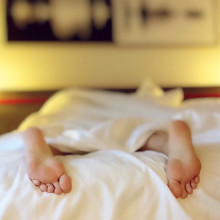
48:42 - Is your sleep account overdrawn?
Is your sleep account overdrawn?
with Dr John O’Neill, MRC Laboratory for Molecular Biology
Drinking moderate amounts of caffeine could be good for you but what about 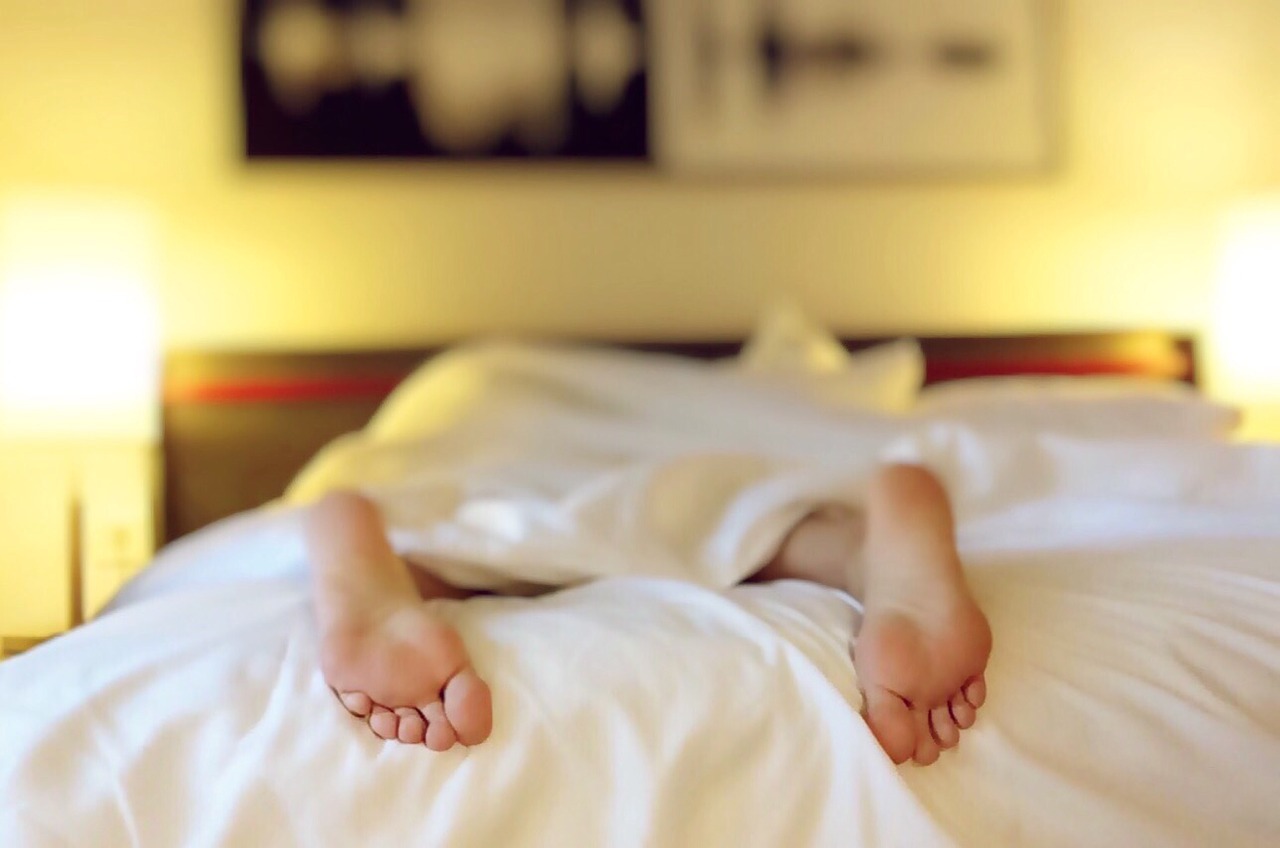 when you drink it? If you drink it late at night, how does this affect our sleep and could it have detrimental long term effects? Dr John O'Neill from MRC Laboratory for Molecular Biology spoke to Chris Smith about the possible affects...
when you drink it? If you drink it late at night, how does this affect our sleep and could it have detrimental long term effects? Dr John O'Neill from MRC Laboratory for Molecular Biology spoke to Chris Smith about the possible affects...
John - Whether or not we sleep is dependent upon two separate, though related, biological processes. One of them is your homeostatic sleep drive and that is something that simply accumulates the longer that you have been awake. And that's very much dependent on adenosine and adenosine receptors that have already been mentioned and, in that context, the longer you have been awake the more adenosine you have in the brain and, in that context, adenosine acts like a sedative...
Chris - So it's trying to make you go to sleep?
John - Exactly, and so...
Chris - That's why the longer you have been awake, the more sleep you get because it's just building up?
John - That's exactly right. But then there is another equally important process - your circadian rhythm and that's the internal, biological clock that regulates so many different aspects of our physiology; such as, when we feel hungry but also when we fall asleep and when we wake up in the morning.
Chris - There is literally a neurological clock ticking away in the brain that's keeping time and it gets us up in a morning and send us to bed at night?
John - It's even more interesting than that. Not only is it in the brain but it's in every single cell in the body. So I could take a scraping of your skin cells, grow them in a petri dish and they would still have an approximately 24 hour rhythm and when various clock genes are turned on and off.
Chris - So my body knows what time of day it is and metabolically it's gearing up for when I'm going to get up in a morning, it's winding me down at night. You've answered the question - what does caffeine do to the buildup of adenosine in the brain that's trying to inextricably build up and send me to sleep anyway, but what about the circadian clock? What does caffeine do to that then?
John - That's a question that had not actually been answered until recently. So, in collaboration with a colleague in the States, Ken Wright at the University of Colorado; in the first experiment we took five humans and persuaded them to spend 49 days in constant dim lights basically - not a huge amount of fun. But, under those very well controlled experimental conditions, we could monitor their biological clock by looking at the timing of the release of the sleep hormone melatonin. And so then what we do is give them, three hours before their normal bedtime, either a placebo pill or a caffeine pill. And the caffeine pill is about 200 mgs - about the same you'd get in a double espresso...
Chris - Nice strong coffee...
John - Exactly. And what we observed was that the melatonin increase was delayed by nearly an hour. Okay, so what you're basically doing is the equivalent of jetlagging yourself.
Chris - In other words, taking that dose of coffee at whatever time of day, is going to push back the natural time when you say - when your brain is normally going to tell you go to sleep and so you're going to start to wind down an hour later than you otherwise would, or so?
John - We actually can't say that yet. All that we can say confidently at the moment is that taken in the evening it will delay your biological clock, and then, the fascinating thing is that we can see exactly the same thing at the cellular level. So in human cells, treating them with caffeine has the same effect - it delays the biological clock. So the thing that's important in terms of your health - taking a step back - is that we know that circadian disruption as occurs during shift work, for example, is really bad for you in the long term. So there's a very strong association with chronic diseases such as diabetes, neurodegenerative disorders...
Chris - Breast cancer...
John - Exactly, yes. A load of different cancers.
Chris - So, don't tell me that by taking coffee into the evening, I might be pushing myself into almost the same regime and increasing my disease risk?
John - It's unlikely that it's going to be of the same magnitude of the risk associated with shift work but it's certainly likely to be pushing you in that direction.
Chris - Am I robbing myself of sleep though, John, in the sense that if I do this and I enable myself to stay active for longer into the evening but then I still set my alarm clock for 7oclock the next morning, am I effectively building up a sleep debt this way?
John - Yes. You are building up a sleep debt and, not only that, going back to the homeostatic sleep drive, if you put one of these electroencephalograms on an individual during sleep...
Chris - Measures brain waves?
John - Exactly right - measures brain waves. You see that the delta power, these slow waves that are very characteristic hallmarks of deep sleep, are much more disrupted in individuals that have had caffeine. So, not only are you going to increase your sleep debt by drinking coffee late at night, or any form of caffeine late at night, but also the quality of the sleep is going to be less.
Chris - Because the normal pattern of sleep that evolves over a night is not going to be fulfilled in your average night. So would your advice then, on the basis of what you're finding, that perhaps people shouldn't push their coffee drinking into the late night?
John - Clearly it is going to vary between individuals, as Thomas said. So some people just do not notice a coffee in the evening and that's got to be due to genetic variation...
Chris - And I'm one of them. I will drink coffee until the cows come home and it doesn't seem to affect my sleep.
John - So that's got to be due to genetic variation within the population...
Chris - Or just saturation?
John - No, no, no! It can't be due to saturation because this aspect, you don't seem to be able to tolerate to its effects upon sleep and the circadian rhythms. So what I would probably advise, based on what we know at the moment, that in caffeine sensitive individuals, they really should try not to drink caffeine at night.

54:20 - Why is space cold when it has so many stars?
Why is space cold when it has so many stars?
Felicity Bedford spoke to Ryan McDonald from the Cambridge University Institute of Astronomy to find out more...
Ryan - The distance between the stars in the universe is absolutely phenomenal; we're talking just between our star and the nearest star - trillions and trillions of miles. And, although that means that we can be quite warm in space nearby to the sun, the majority of the universe is so far away from the rest of the stars in the universe that it is absolutely freezing. I mean we're talking the temperature of space in shadows or far away from stars - it's around -270 celsius - that's almost as cold as it's possible to get. Only about three degrees above the coldest temperature theoretically possible.
Felicity - How do we know about these extreme temperatures if they're so far away from our own experience of space?
Ryan - So, the temperature of just empty space, far away from any stars, is set by something we call the cosmic microwave background. So, basically, after the big bang took place, it emitted a huge amount of light - about 400,000 or so years after it and that light has gradually lost energy and cooled down over time. And so, this is just background light that fills the entire universe and it's really, really cold and so that's what sets the fundamental temperature of space itself, away from the stars.









Comments
Add a comment